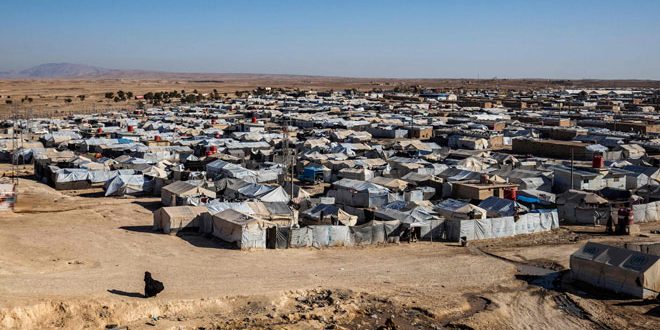US-backed SDF militia exploits chaos and insecurity in Al-Hawl camp to justify is practices against citizens
The state of chaos and insecurity inside Al-Hawl refugee camp, east of Hasakah, continues amid increasing death incidents within its sections. The camp is controlled by the US-backed “Syrian Democratic Forces ” (SDF) separatist militia and the US occupation forces.
According to sources in Al-Hawl district, the camp witnessed mysterious incidents with unknown causes during the past few days, including the murder of a woman in section 4 and the crucifixion of a girl after killing her in the same section.
Four residents were also found killed by silent guns last Wednesday, the sources said, noting that the incidents caused a state of panic among residents in the camp who have lost hope in the SDF militia’s ability to maintain security in this place.
The sources pointed out that the militia’s deliberate negligence of camp’s affairs increases chaos and insecurity there.
The sources went on to say that the SDF militia will continue to exploit these conditions with the aim of keeping the camp as a means to terrorize citizens and justify its practices against them, particularly after the news circulated by some media outlets about the intention of ISIS terrorist organization to implement attacks in the camp in a scenario similar to the recent events that took place in the industrial high school-based prison that led to the killing of dozens of prisoners and the escaping of dozens of ISIS terrorists who were held in this prison.
The SDF militia tries to maintain its control over the camp to get support from world humanitarian organizations on the one hand, and to politically promote its schemes through communicating with the governments of several countries which have nationals who joined ISIS ranks in Syria, on the other.
Al-Hawl camp, located in the east of Hasakah, contains Iraqi refugees and many Syrians whom the SDF militia refused to let them enter the city of Hasakah. Most of the Syrians inside the camp are from the countryside of Deir Ezzor, Raqqa and other neighboring provinces.
Hamda Mustafa

